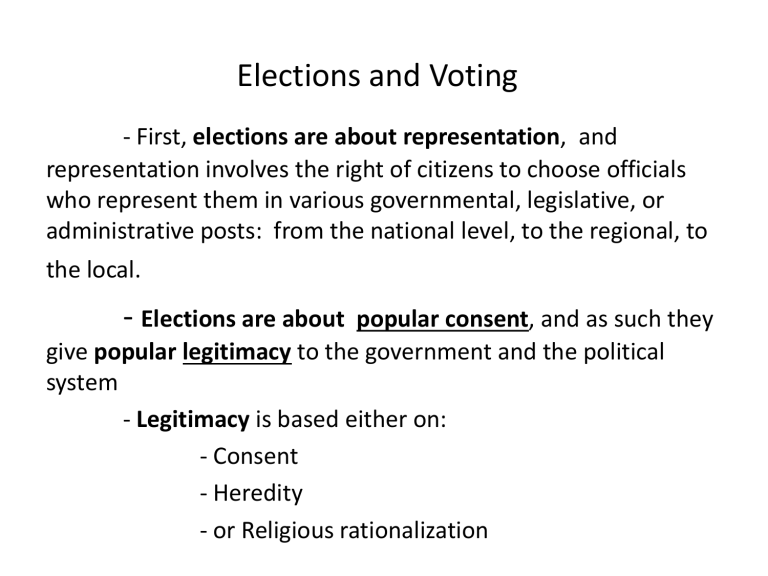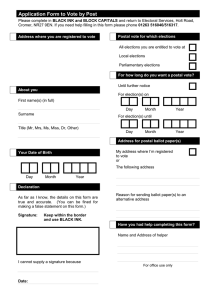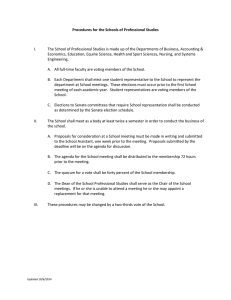Elections and Voting: Representation, Legitimacy, and Voting Systems
advertisement

Elections and Voting - First, elections are about representation, and representation involves the right of citizens to choose officials who represent them in various governmental, legislative, or administrative posts: from the national level, to the regional, to the local. - Elections are about popular consent, and as such they give popular legitimacy to the government and the political system - Legitimacy is based either on: - Consent - Heredity - or Religious rationalization • - Popular Sovereignty: It is the principle that says, there is no higher authority than the will of the people • - Initiative: A type of referendum through which the public is able to directly raise legislative proposals • - Referendum: A type of vote in which the public express their opinions by either YES, or NO, on issues spelled out through initiatives, such as in many states in the U.S. Also, referendums are used in some Third World countries where voters have only one candidate – the president, the dictator, etc. – to vote for, by yes or no. • - Recall: A process whereby the public or electorate can call unsatisfactory public officials to account, and vote on removing them from office. • - Majority Vote: A type of vote in which the one who gets more than 50 percent of the votes wins the election, • - Plurality Vote: A type of vote in which the one who gets the highest percentage of votes wins the election, even if it is less than 50 percent: say 45 %, or 40 %, etc.. • - Proportional Vote or Representation: It is the type of vote in which seats – in the parliament or city council, etc.. -- are allocated based on the percentages of votes which party lists achieve in the elections. • - Party-List Election System: The type of elections in which various parties compete to win the public vote and elections, by forming party list(s), or coalition list(s), for which the voters vote for the complete list, or with minor modifications. Examples: parliamentary elections in France, Britain, and now in Lebanon. • - Rational Choice Model: It is the model or theory in politics which says that in elections people basically vote for the parties or candidates whom they see as good, or they rationalize that they are at least good to them and their interests, or vote for those who promote or champion the causes they espouse or support.



